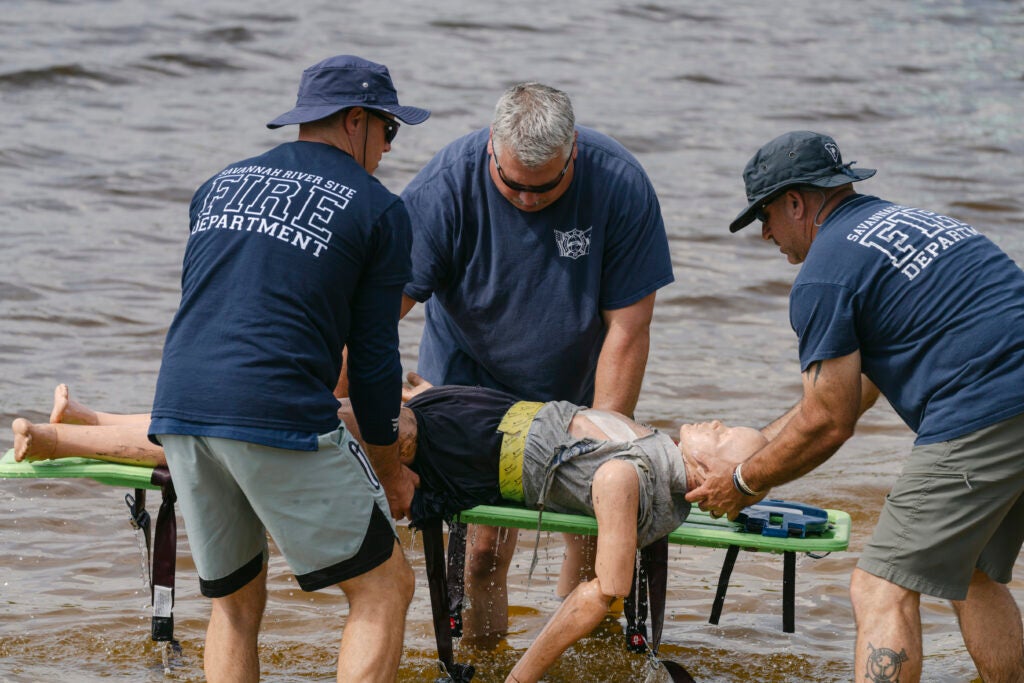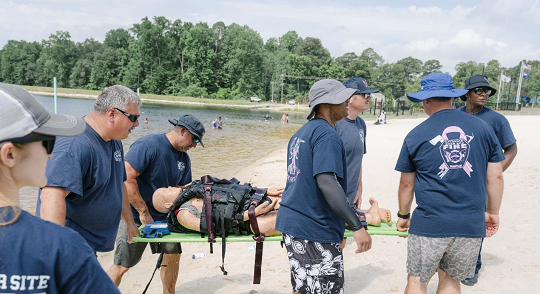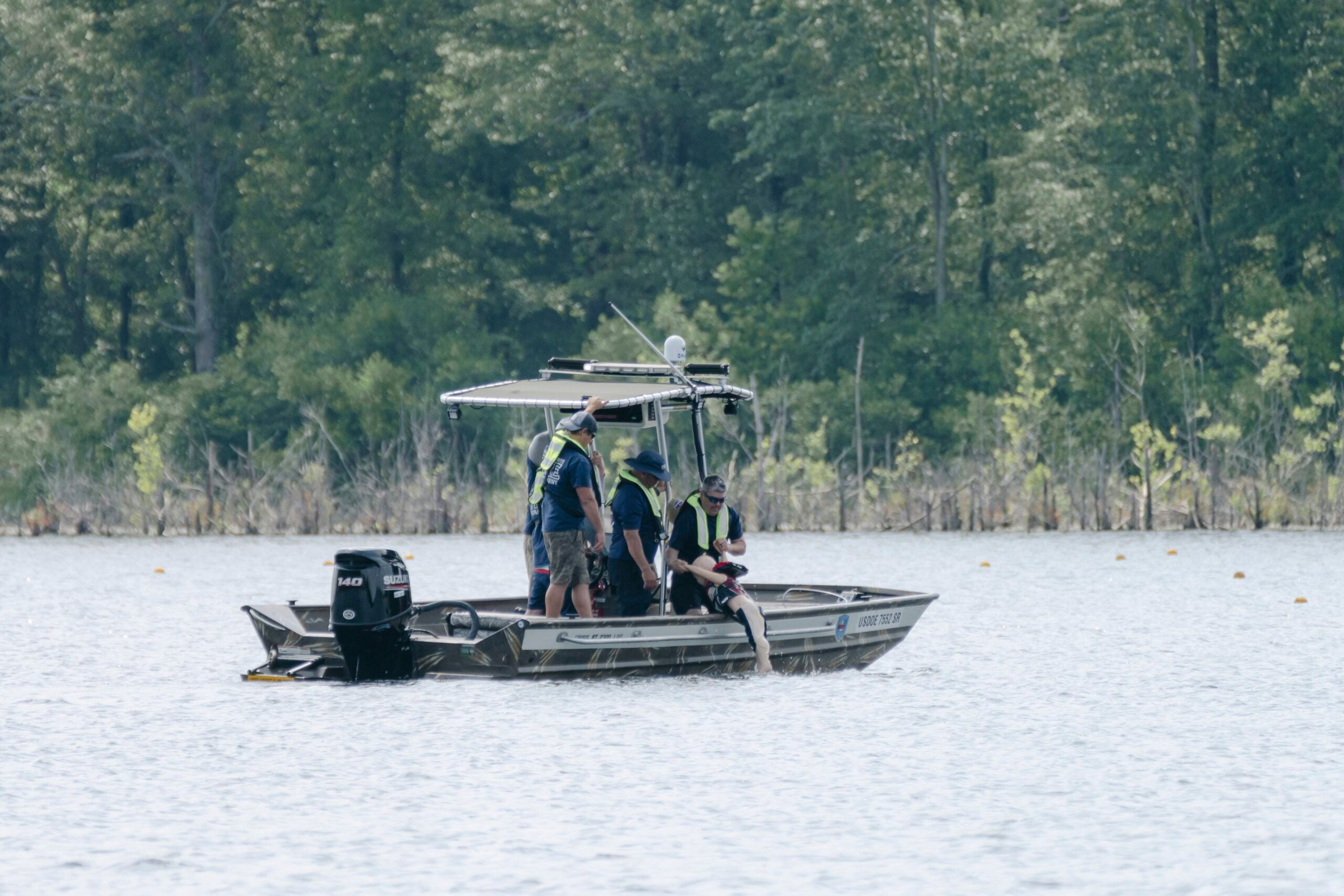Savannah River Site Fire Department (SRSFD) recently practiced their water rescue skills during their annual surface water rescue training at Langley Pond Park.
Firefighters practiced rescue boat operations, learned how to launch and dock the boat, and performed rescue skills to save victims from the water during this training. Floating manikins were used to act as the victims, so firefighters were able to practice rescuing victims with spinal injuries.
MORE: New school year, same Richmond County shenanigans

“The SRSFD strives to deliver a premier level of service, which would not be possible without rigorous training,” said TJ Brown, SRSFD training chief. “With minimal to no other water rescue assets close to SRS, SRSFD assist multiple counties with surface water rescue operations on the Savannah River.”
SRS has aided neighboring fire departments since 1989. Currently, the SRSFD has seven aid agreements with Aiken County Emergency Services, the Aiken County Fire Department, Allendale and Barnwell counties and South Carolina State Mobilization in South Carolina, and Richmond and Burke counties in Georgia.

The aid agreements between SRS and the surrounding counties has supported the community with ensured response in case of an incident, and the SRSFD typically responds to 10 to 15 aid agreement calls each year. The aid agreement is reciprocal, meaning the SRSFD can call on other fire departments if the site needed additional help in the event of an emergency.
“Everyday, firefighters at SRS face evolving dangers in multiple disciplines from EMS, fire, high angle rescue, confined space, hazmat, extrication, water rescue, and so many more,” said Brown. “Training is imperative to ensure we are constantly prepared for any and all emergencies.”









